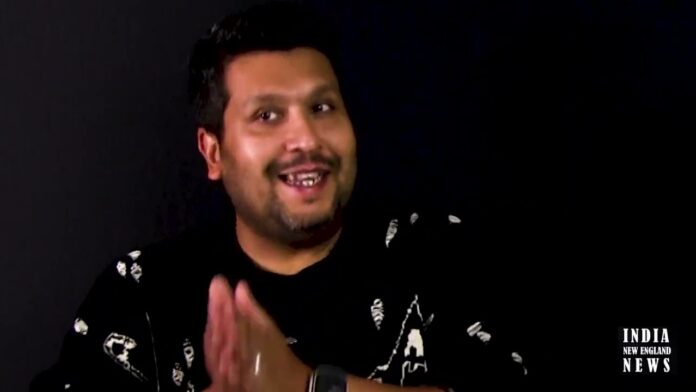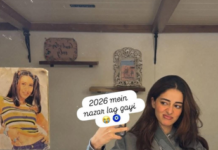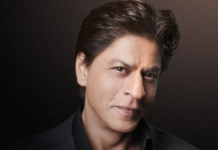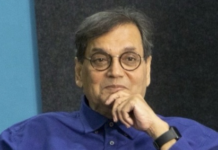BOSTON — Music composer Bappa Lahiri, during a recent visit to Boston, opened up about the legacy of his father, the late music icon Alokesh “Bappi” Lahiri, reflecting on his father’s signature style, his unforgettable gold chains, and the musical universe he created over five decades.
In an exclusive conversation, Bappa spoke candidly about the man behind India’s disco revolution—his artistry, his personality, and the cultural phenomenon he became.
To watch the full video interview with Bappa Lahiri, please click here or on the image below.
A Trailblazer From West Bengal
Bappi Lahiri, celebrated worldwide as India’s first true “Disco King,” was born into a musically eminent family in West Bengal. His career began early: he composed his first song for the Bengali film “Daadu” (1972) and entered Bollywood a year later with “Nanha Shikari” (1973).
But it was “Zakhmee” (1975) that marked his explosive arrival. At just 22, Bappi not only composed the film’s music but also lent his voice to several tracks, instantly establishing himself as a prodigious talent with a flair for innovation.
The Sound of a Generation
Over the years, Bappi Lahiri developed a sound that blended Indian melody with Western disco, pop, and electronic elements—a bold experiment at the time that later became his signature. His soundtracks for films like Disco Dancer, Dance Dance, Namak Halaal, Sharaabi, and Himmatwala turned into cultural milestones.
Speaking in Boston, Bappa noted that what set his father apart was his ability to “sense the pulse of the audience long before the industry caught up.” He described Bappi’s studio as a playground of synthesizers, drums, and experimental beats that eventually shaped modern Bollywood soundscapes.
A Legacy of Collaboration With Legends
Throughout his prolific career, Bappi Lahiri worked with some of the greatest voices in Indian music. He composed for and directed:
-
Mohammed Rafi
-
Lata Mangeshkar
-
Asha Bhosale
-
Usha Uthup
-
And his maternal uncle, the legendary Kishore Kumar, whose association with Bappi produced numerous evergreen hits.
Together, they delivered songs that were soulful, energetic, and rhythmically groundbreaking—tracks that continue to resonate with audiences across generations.
Beyond the Music: The Man and the Myth
Bappa also reflected on the persona that made his father instantly recognizable: the gold chains, sunglasses, and flamboyant style. It wasn’t vanity,” he said. It was his identity—his way of celebrating life and music. Bappi’s unique look became a pop-cultural symbol as iconic as his compositions.
Despite his glamorous image, Bappa emphasized that his father was deeply spiritual, disciplined in his craft, and committed to uplifting new talent.
Remembering a Cultural Titan
Bappi Lahiri’s influence transcended Bollywood. His songs reached global audiences, his beats defined an era, and his work introduced India to a new sonic vocabulary. As Bappa Lahiri’s Boston interview makes clear, his father’s legacy is far more than disco—it is a story of reinvention, passion, and relentless creativity.














